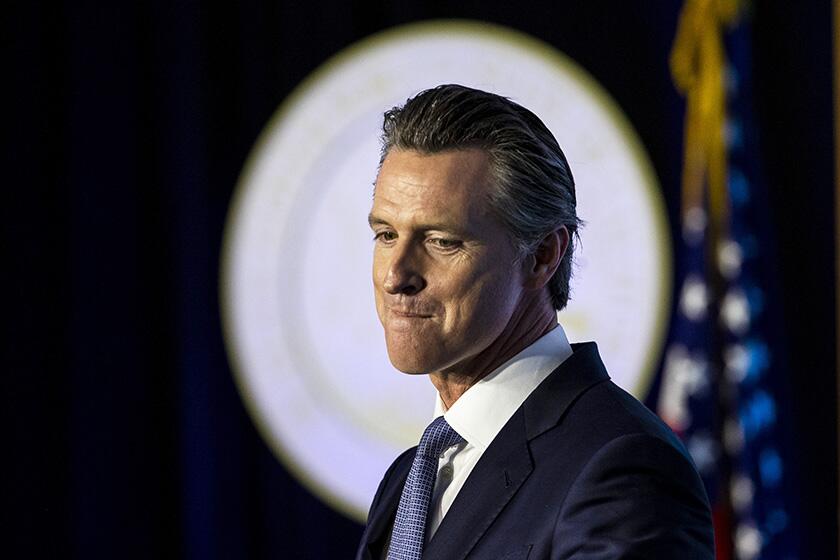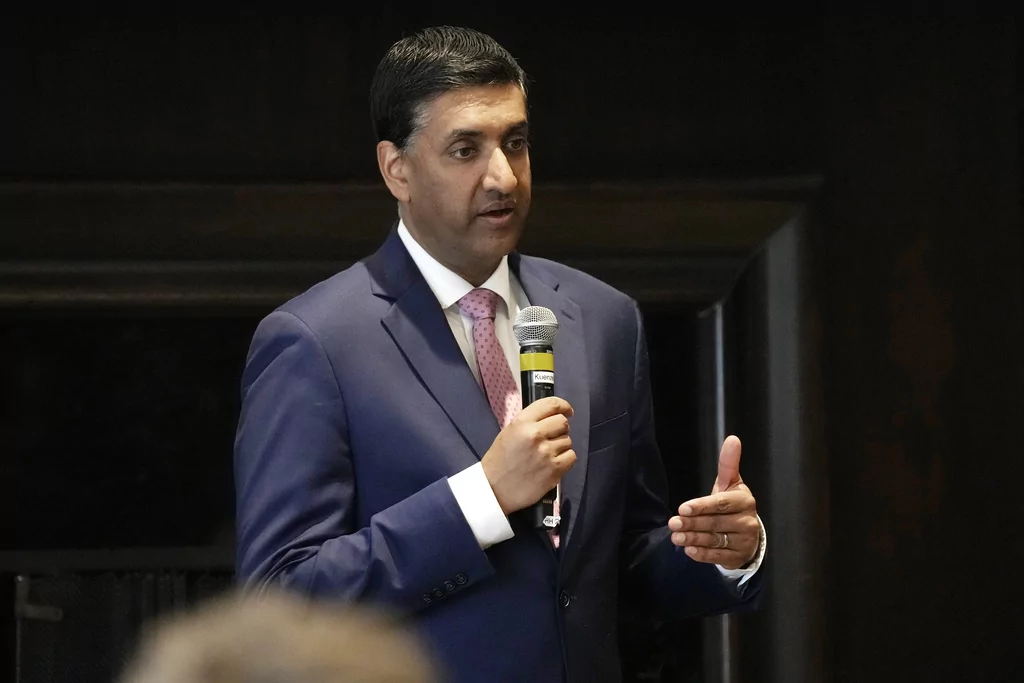“Trump with a Pint”: Nigel Farage’s Radical Revamp of British Politics
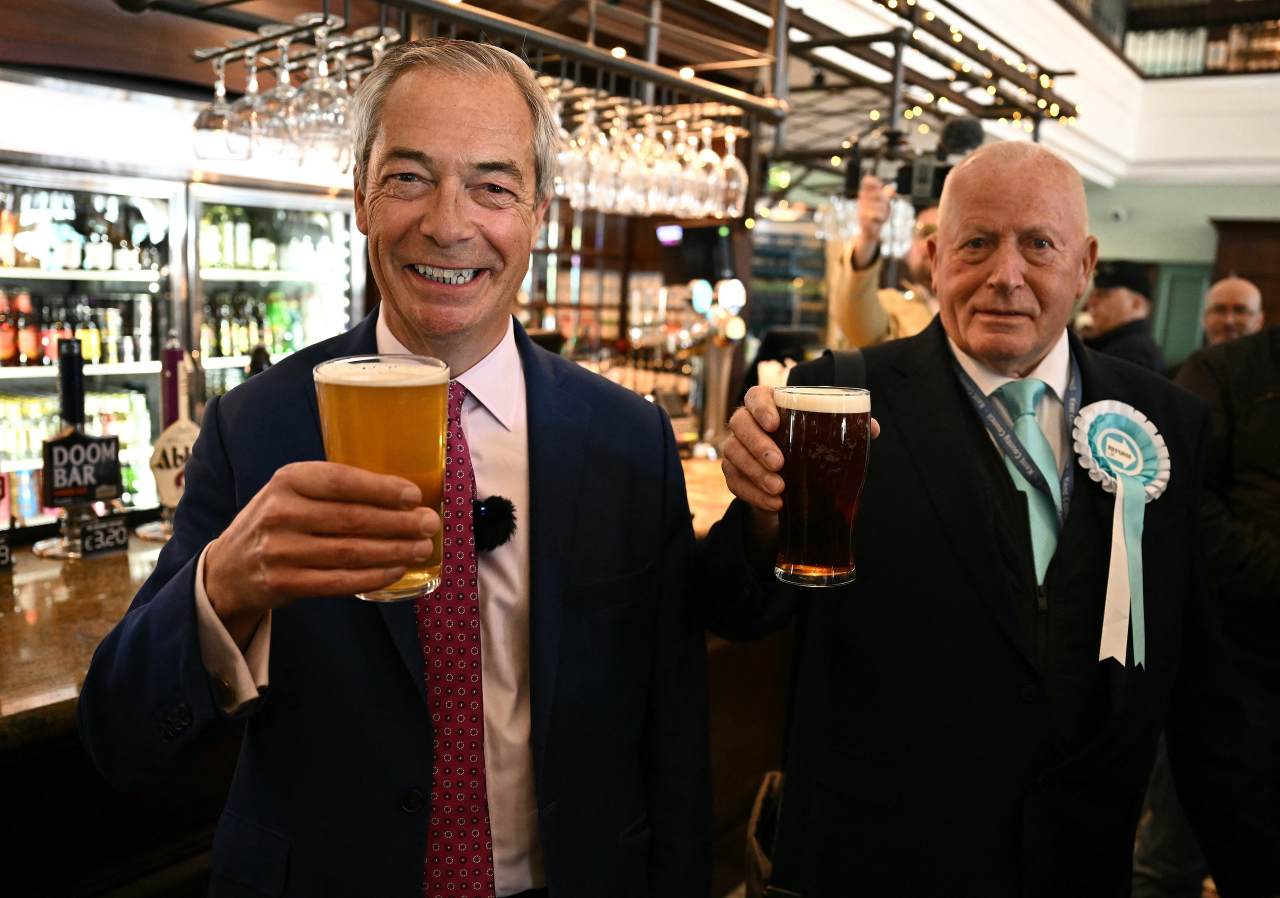
A year ago, Britain’s
populist politician
Nigel Farage was uncertain about running for Parliament in an upcoming national election, following his failure to secure a seat in seven prior attempts.
The eccentric former commodities trader not only
went on to win a seat
However, his emerging Reform UK party has gained significant traction due to its anti-immigration stance and is currently polling closely behind the governing Labour Party and just ahead of the opposing Conservative Party.
The party is performing significantly better in electoral contests compared to before. Following the local elections on Thursday, Reform seemed poised for an unprecedented win by capturing numerous municipal council positions from the Conservative Party. Additionally, Reform secured a special district election in what was traditionally considered a Labor bastion, thereby boosting its representation in Parliament and demonstrating its ability to attract support from voters across the political spectrum, including those typically aligned with the right and the left.
The surge has turned Farage from being a vibrant side show in British politics into a major draw, giving him a genuine opportunity where before only an unlikely scenario existed: the possibility that he might one day wield actual power.
“I think we’ve supplanted the Conservative party now as the main opposition party to the Labour government,” said Farage, who smokes cigarettes and is often pictured quaffing pints of beer, part of his public persona as an average “bloke” who tells it like it is (he has been called Donald Trump with a pint).
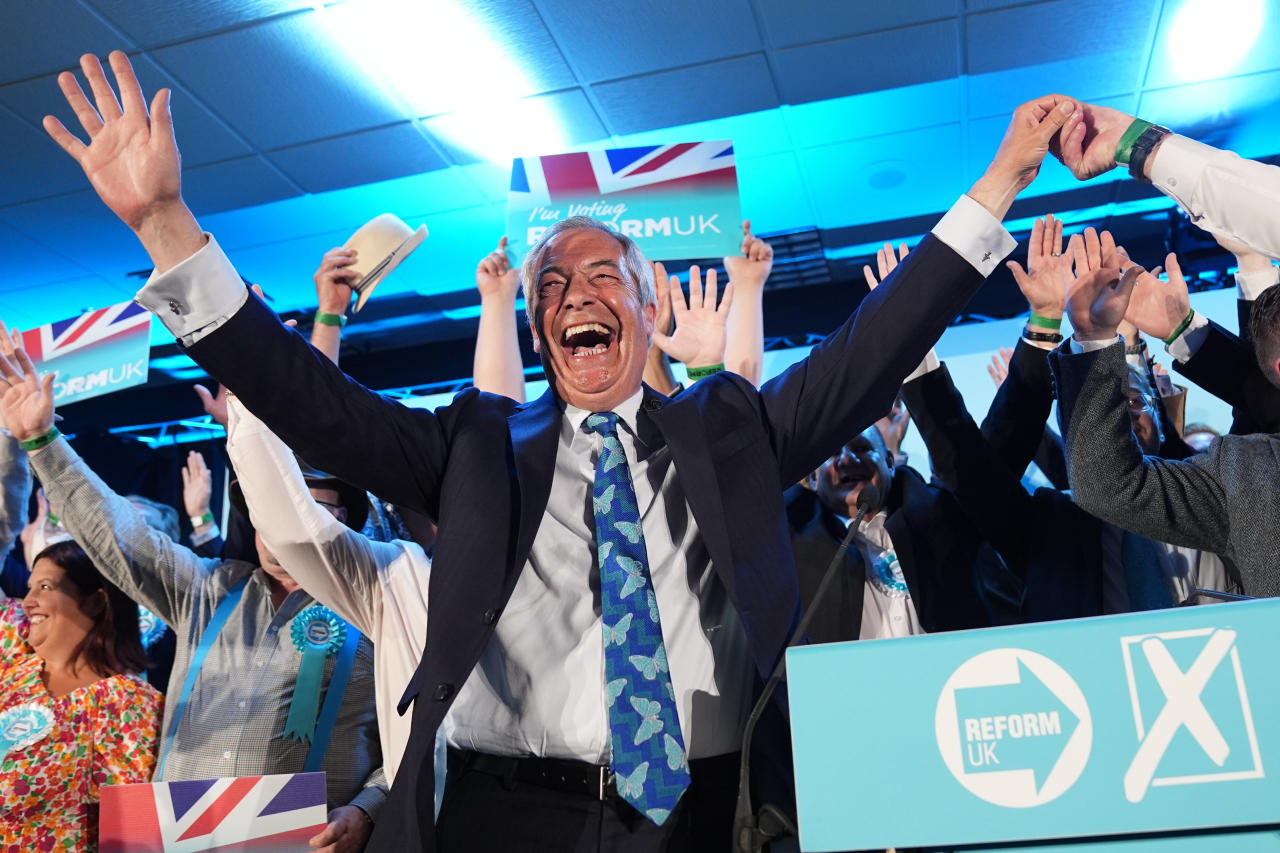
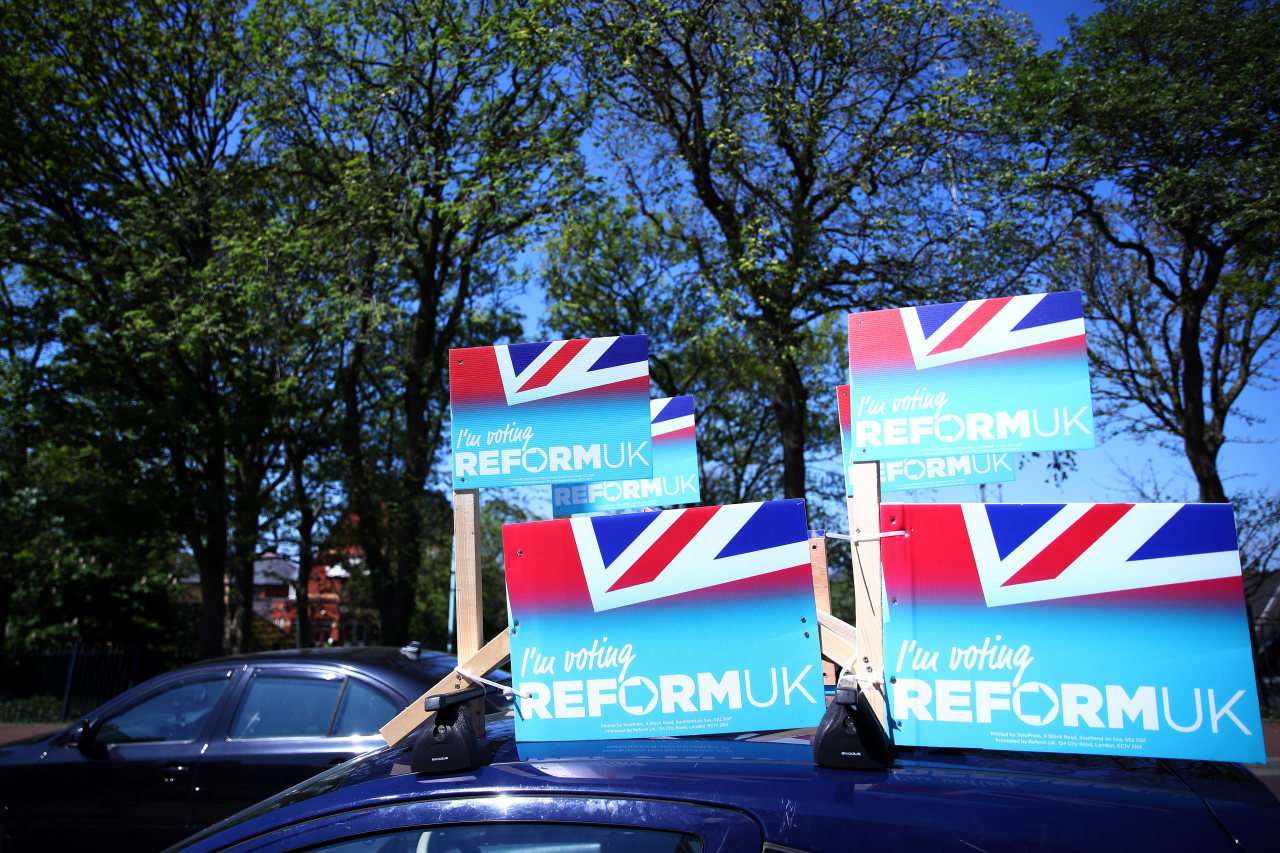
The rise of Reform and its frontman reflects the same kinds of populist forces that have disrupted politics in the U.S., continental Europe and elsewhere: resentment at the perceived failures of traditional politicians and frustration at how globalization played out in industrialized nations for many in the working class, including a sense that too many jobs went overseas and too many people came in through immigration.
Farage, who rose to prominence as a
champion for Brexit
and one of the few British politicians to openly embrace Trump, is trying to ride that disaffection to pull off a Trump-style takeover of British politics. The difference is that instead of taking over an establishment party, Farage has built his own.
Reform has climbed from just 8% support in polling two years ago to 14% during last year’s election. Now it is polling between 23-26%, roughly tied with Labour and a few points clear of the Conservatives, called the Tories, who face the threat of Reform becoming the go-to right-wing party.
Rising support for Reform follows a record surge in immigration to the U.K. in recent years under the Tories, who governed from 2010 to 2024. The Conservatives repeatedly promised,
and failed
, to lower immigration numbers, leading some voters to feel betrayed. More than 1.6 million people migrated legally to the U.K. over the past two years, alongside tens of thousands arriving illegally each year in small boats.
Labour,
elected just last year
, has seen its approval ratings slump as economic growth remains sluggish. It has angered businesses by hiking taxes, and angered working-class voters by trimming some state benefits. While it has tightened rules on legal migration, asylum seekers are arriving this year in record numbers. A
recent poll
showed 72% of Brits say the government is handling immigration badly, versus 16% who say it is doing a good job. It was the second most important issue after the economy.
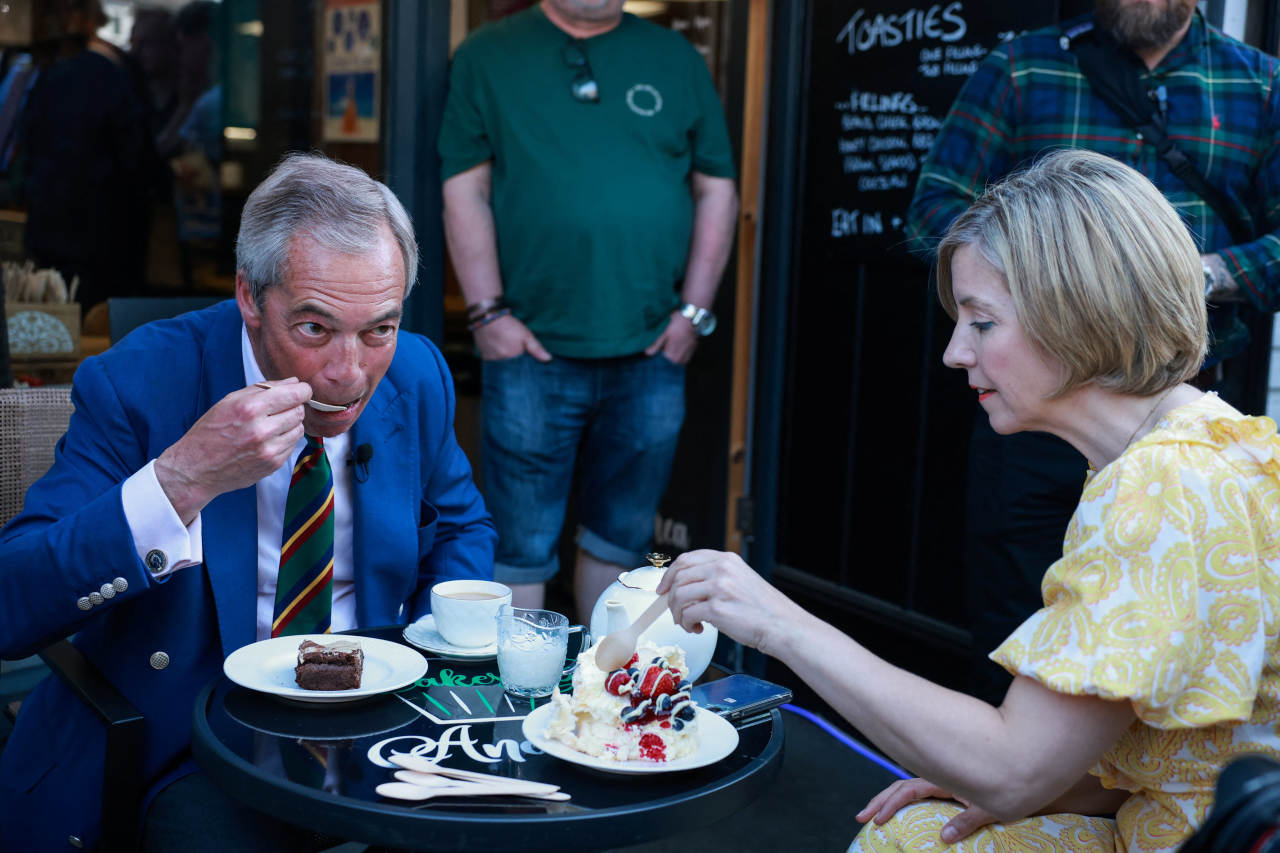
Having won a handful of parliamentary seats in last year’s general election, Farage now wants to transform Reform into a national movement to overtake the Tories on the right and win the next general election, likely in 2029.
Securing dominance remains an uphill battle. Farage’s movement primarily revolves around him as the central figure, often experiencing conflicts within his team and partnerships. Additionally, his economic strategies are rather inconsistent, encompassing measures like eliminating inheritance taxes alongside plans for renationalizing sectors such as steel production.
Although Farage’s earlier efforts to create a political party ended in disarray, this time around he seems more organized and composed, with his new party also boasting improved financial backing. Farage has gained fame beyond politics, notably starring as a participant in the British TV reality series “I’m a Celebrity… Get Me Out of Here!”
Consequently, a man who was previously dismissed by Britain’s political establishment as a marginal crackpot “has become the main attraction” in Westminster, according to Rob Ford, a professor from the University of Manchester.
The rapid growth of Reform is disrupting a political system long controlled by the two main established parties, spanning almost a hundred years. This shift isn’t solely due to the ascendance of Reform on the right; even the Green Party and the Liberal Democrats are posing challenges to Labour from the left. In the previous year’s general election, Labour and the Conservative party combined garnered only 57% of the votes—a figure not seen in a century.
” Britain’s two-party system is likely encountering its greatest challenge in 100 years,” stated John Curtice, a political analyst from the University of Strathclyde. He mentioned that the U.K. has transformed into a five-party system.
Curtice mentioned instances where an alternative party momentarily spiked in the polls and appeared poised to challenge one of the major established parties. A prime example was the Social Democrats from the center-left during the early ’80s; they temporarily seemed likely to surpass Labour but ultimately fell short. Eventually, they joined forces with the Liberals to form what is now known as the Liberal Democrats.
However, this time around, he noted, it seems distinct due to voters generally having abandoned their trust and affiliation with the conventional political parties.
“We are witnessing a fragmentation of our politics that I never imagined we would experience,” Farage stated during an alcoholic luncheon with reporters in Westminster not long ago.
Britain’s peculiar “first past the post” voting system, wherein each parliamentary seat goes entirely to the winning party, often disadvantages smaller political groups and helps sustain the two-party dominance of Labour and Conservatives. However, when multiple parties compete, this same system might benefit Reform as minor changes in voter preference can lead to significant alterations in results. In the previous year’s election, despite Labour receiving less than 34%, they still secured a substantial majority.
Given this voting system and these poll numbers, every certainty regarding the British government and politics might be temporarily—and perhaps even permanently—put into question,” stated Tony Travers, a political analyst from the London School of Economics. He added that the most startling aspect was how the Conservatives, frequently referred to as the planet’s premier electoral force, could find themselves “on the brink of potential annihilation.
This week’s results will likely cause some Tories to panic and heighten divisions over how to deal with Reform, Travers said. Tory leader Kemi Badenoch has ruled out an alliance, but other Tory figures have openly backed the idea.
Thursday’s local elections confer limited powers—overseeing local services such as trash collections and care for the elderly. For Reform, it is the opportunity to show they can govern, but also presents a risk that they won’t do any better than their rivals.
You’re watching the conclusion of a celebration that started back in 1832,” stated Farage about the Tories. “It is vanishing.
Send your correspondence to David Luhnow.
david.luhnow@wsj.com
and Max Colchester at
Max.Colchester@wsj.com



